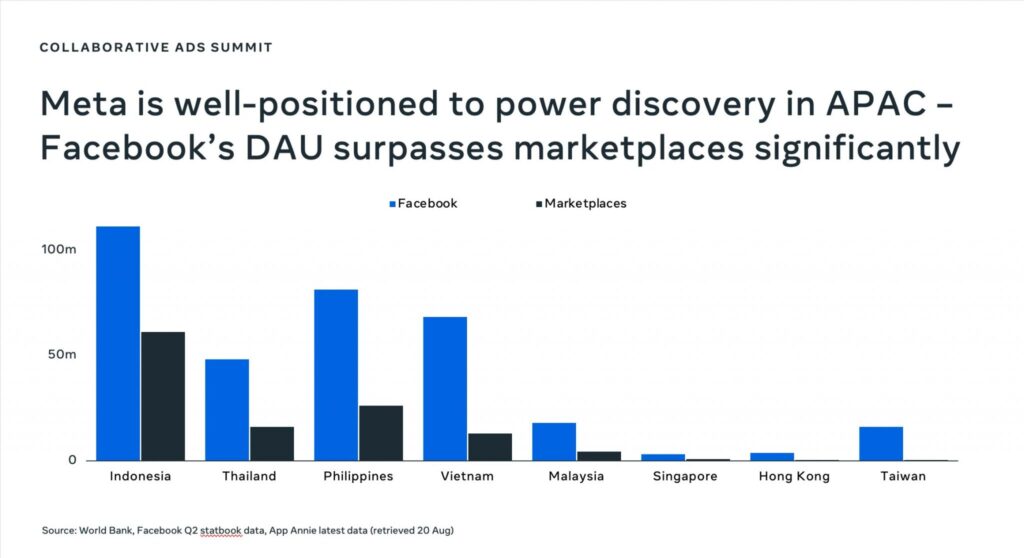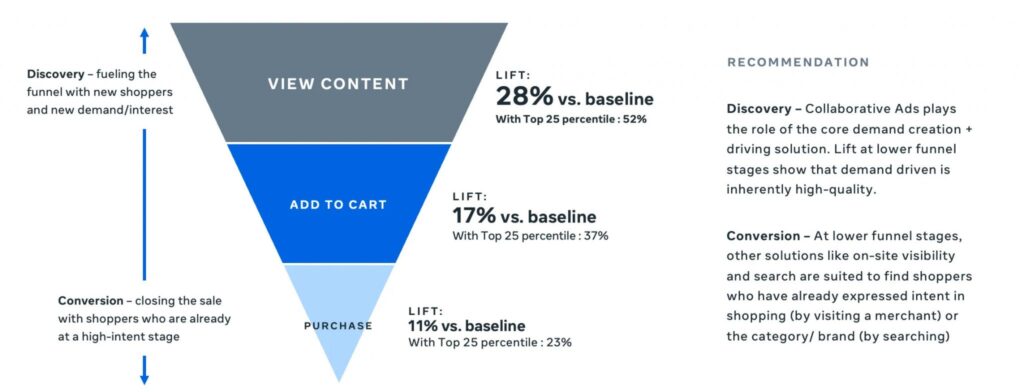Facebook for eCommerce is reshaping the landscape, especially as we look towards 2025. A key challenge many marketers face in today’s e-commerce environment is how to allocate budgets to maximize online sales. This is not a new challenge, but it is an issue garnering increasing attention amidst a growing focus on profitability and the re-emergence of hybrid retail.
Numerous studies and abundant data have shown that the technologies progressively fostered by the Meta platform can drive sustainable growth and scale into the billions. Read this article by Optimal Marketing Agency now to learn more about effectively leveraging Facebook for eCommerce.
Leveraging Facebook to Reach Users
According to the latest statistics, Meta (Facebook) currently has over 3.74 billion users – an all-time high. In the Asia-Pacific region, the user growth rate on the Facebook and Instagram platforms is significantly high compared to the overall average. As the leader in active users on the e-commerce front, Meta (Facebook) is favorably positioned to steer its vast audience towards becoming their e-commerce shoppers.

This extensive reach has proven exceptionally effective for consumers’ discovery of new products and services, as well as activating demand at the top of the purchasing funnel. This discovery phase is a crucial element of Facebook for eCommerce strategy.
An analysis based on 227 conversion lift studies across the consumer goods, technology, and e-commerce sectors indicated that commerce solutions on Meta can drive significant sales impact throughout the entire funnel, but most notably in the upper-funnel stages (over 28% compared to the baseline). During Mega Sales Days, it was also observed that Meta (Facebook) solutions drove 88% of new buyers in the four weeks preceding the actual sales day.

The Advertising Power of Facebook for eCommerce
Driving Deep Reach and User Loyalty
Studies with Kantar have shown that Meta (Facebook) can deliver up to 40% higher sales when investments in its branding and commerce solutions are balanced. Consequently, the platform facilitates growth both from acquiring new customers and increasing revenue by re-engaging existing ones.
The Effect of Ad Formats and Machine Learning
The Meta (Facebook) platform offers multiple formats (video, messaging, shop ads, Reels, etc.) supported by artificial intelligence (AI), continuously optimized based on user preferences and browsing trends. Understanding these formats is key for successful Facebook for eCommerce campaigns.
“Multiplicity” is the term we use to capture how we have multiple entry points and experiences that combine to provide an environment for optimal business results. As users continuously discover, visit, and shop online, we find that a combination of brand experiences is the best way to reach and change behavior. Studies have shown that many campaigns perform up to 2.7 times better when leveraging “Multiplicity” and the principles behind it.
Compared to other platforms, research also indicates that these characteristics of the Meta (Facebook) platform have made it more favored for communication, connection, and entertainment purposes. This means that potential shoppers tend to interact with and learn about brands/products on this platform more than on other social channels, marketplaces, or some other chat applications. This inherent engagement is a core strength of Facebook for eCommerce.
The Dual Power of Learning
Currently, Meta (Facebook) is continuing to significantly invest in artificial intelligence (AI) to enhance the user experience through personalized recommendations. This can help advertisers deliver the right ads to the right people and achieve relevant results. One of the significant benefits of running campaigns on Meta (Facebook) is the seamless operation; the system leverages signals and knowledge to inform current and future campaigns.
The effectiveness of incorporating new solutions capable of signal recovery and powered by AI, such as the Conversions API and Advantage+ Shopping, has been demonstrated in tests to boost metrics like Return on Ad Spend (ROAS) (+32%) and achieve better CPA (Cost Per Action) (+17%) in case studies.
Many new advertising mediums and technologies on various platforms – whether e-commerce marketplaces or super-apps – can offer outstanding ROIs (Return on Investment) on campaigns. However, for advertisers looking to accelerate the scaling of their eCommerce business, Meta (Facebook) still holds a strategic position, offering growth through effective reach and conversion tactics, while also helping to scale rapidly with increased investment.
Conclusion
The article above has provided useful information on leveraging the massive user base on the Meta (Facebook) platform to achieve effectiveness in e-commerce. The power of this platform can support advertisers and marketers in enhancing their business performance. Read more articles from Optimal Marketing Agency for more interesting information and insights.
